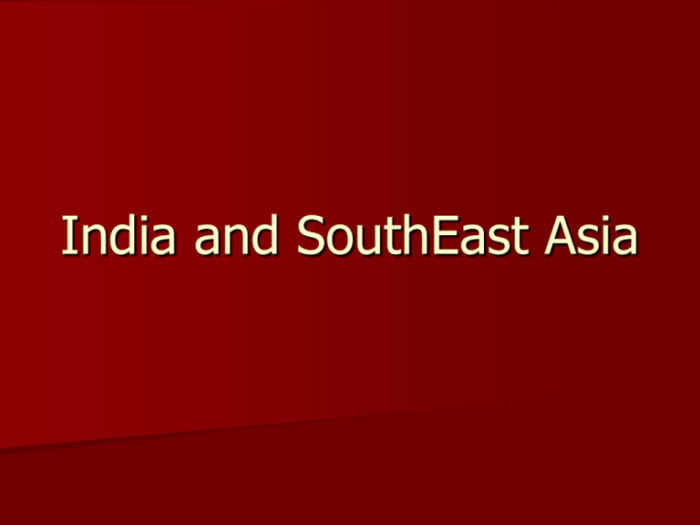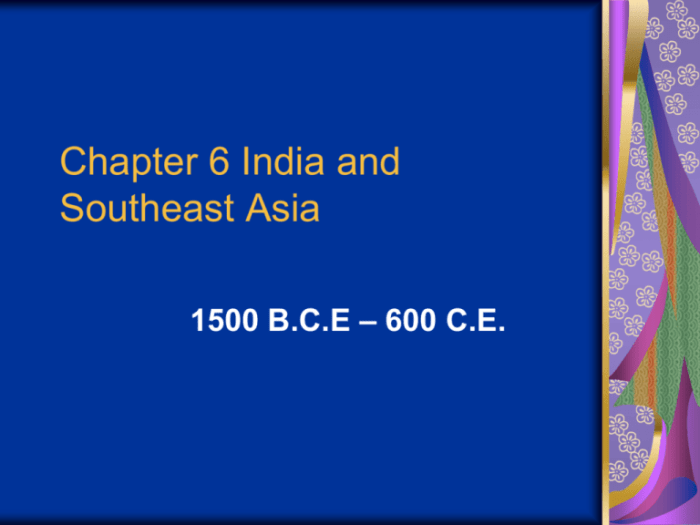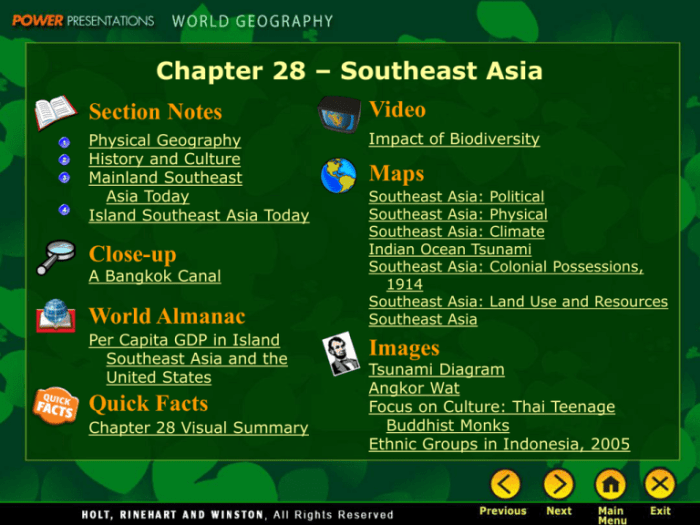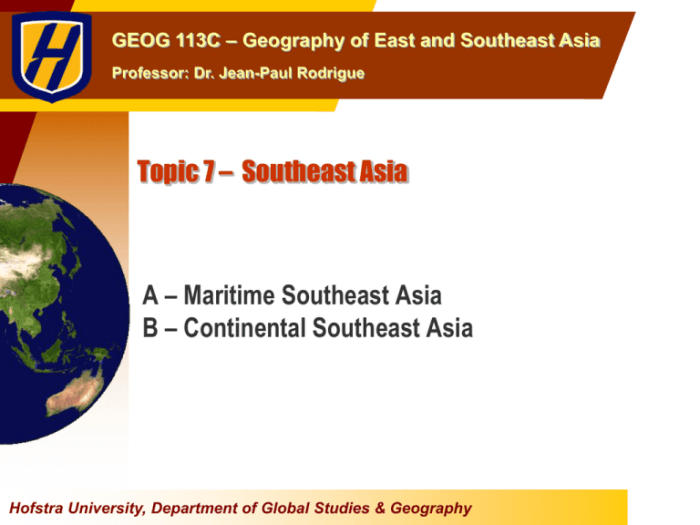Topic 1.3 developments in South and Southeast Asia invites readers to delve into a comprehensive exploration of the region’s socio-economic and political landscapes, examining key trends, challenges, and opportunities that shape its present and future.
From the dynamic economic growth fueled by globalization and regional integration to the complexities of political systems and the pursuit of democratic governance, this topic offers a multifaceted perspective on the evolving nature of South and Southeast Asia.
1. Socio-Economic Developments: Topic 1.3 Developments In South And Southeast Asia

South and Southeast Asia are experiencing rapid socio-economic transformation, driven by factors such as globalization, technological advancements, and urbanization. The region has witnessed significant economic growth in recent decades, with many countries achieving high rates of GDP growth.
Globalization has played a crucial role in shaping the economic landscape of South and Southeast Asia. Increased trade and investment have fueled economic growth, leading to the expansion of export-oriented industries and the creation of new jobs. Regional integration initiatives, such as the Association of Southeast Asian Nations (ASEAN), have also contributed to economic development by facilitating trade and investment flows within the region.
Successful economic development initiatives in South and Southeast Asia include the Green Revolution, which led to increased agricultural productivity, and the establishment of special economic zones, which have attracted foreign investment and created employment opportunities.
Political Developments
The political landscape of South and Southeast Asia is diverse, with a range of government systems and political ideologies. Some countries in the region have transitioned to democratic systems, while others remain authoritarian or semi-authoritarian. Political stability and democratic governance pose significant challenges in some countries, due to factors such as corruption, ethnic conflict, and weak institutions.
Regional organizations, such as ASEAN, play a vital role in promoting cooperation and stability in South and Southeast Asia. They provide a platform for dialogue and conflict resolution, and facilitate cooperation on issues such as economic integration, security, and environmental protection.
Security Developments
South and Southeast Asia face a range of security challenges, including terrorism, piracy, and border disputes. Terrorism remains a significant threat in some countries, particularly in areas with weak governance and large ungoverned spaces.
Piracy is another major security concern in the region, especially in the Strait of Malacca and the South China Sea. Regional and international organizations, such as the ASEAN Regional Forum (ARF), have played a role in addressing security challenges through cooperation and capacity building.
Border disputes between countries in South and Southeast Asia have also been a source of tension and instability. These disputes are often rooted in historical claims and territorial ambitions.
Environmental Developments, Topic 1.3 developments in south and southeast asia
South and Southeast Asia face a range of environmental challenges, including climate change, deforestation, and pollution. Climate change is having a significant impact on the region, leading to rising sea levels, extreme weather events, and increased vulnerability to natural disasters.
Deforestation is another major environmental concern, particularly in Indonesia and Malaysia. It contributes to climate change, loss of biodiversity, and soil erosion. Pollution, including air pollution, water pollution, and plastic pollution, is also a major problem in many urban areas in South and Southeast Asia.
Efforts are being made to address these environmental challenges and promote sustainable development in the region. These include investments in renewable energy, reforestation, and pollution control measures.
Cultural Developments
South and Southeast Asia is a region with a rich and diverse cultural heritage. It is home to a wide range of languages, religions, and traditions. Cultural preservation and promotion pose challenges in some countries, due to factors such as globalization, modernization, and religious extremism.
Cultural exchange and cooperation can play a vital role in fostering regional understanding and cooperation. Regional organizations, such as ASEAN, have promoted cultural exchange through initiatives such as the ASEAN Cultural Centre.
FAQ Resource
What are the key economic trends shaping South and Southeast Asia?
Globalization, regional integration, and the rise of emerging markets have played significant roles in driving economic growth in the region.
What are the major security challenges facing South and Southeast Asia?
Terrorism, piracy, and border disputes are among the primary security concerns in the region, requiring cooperation between regional and international organizations to address.


